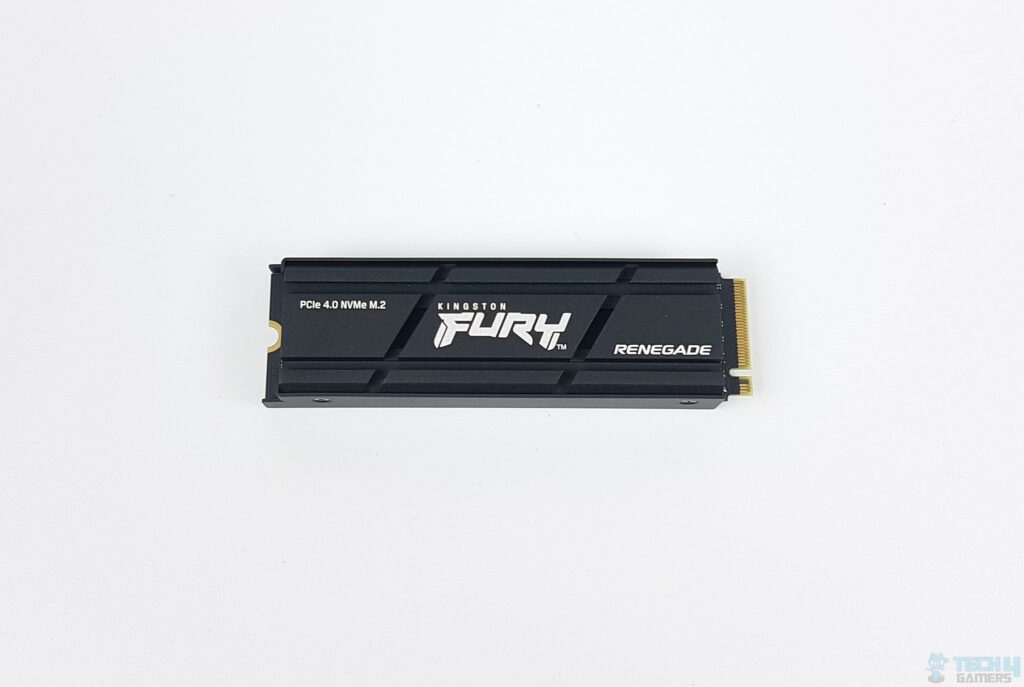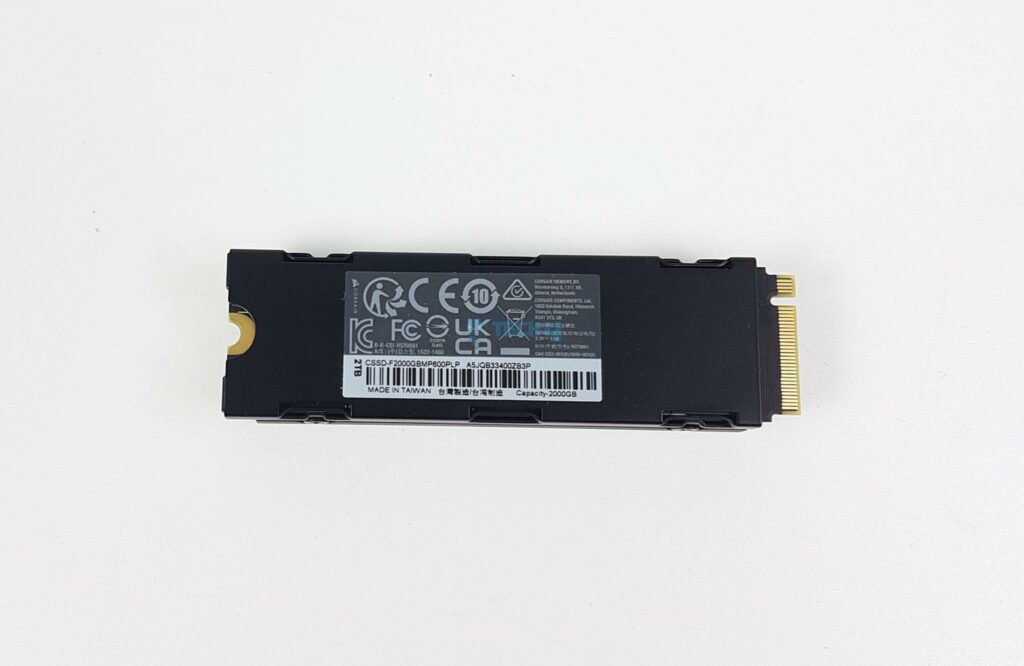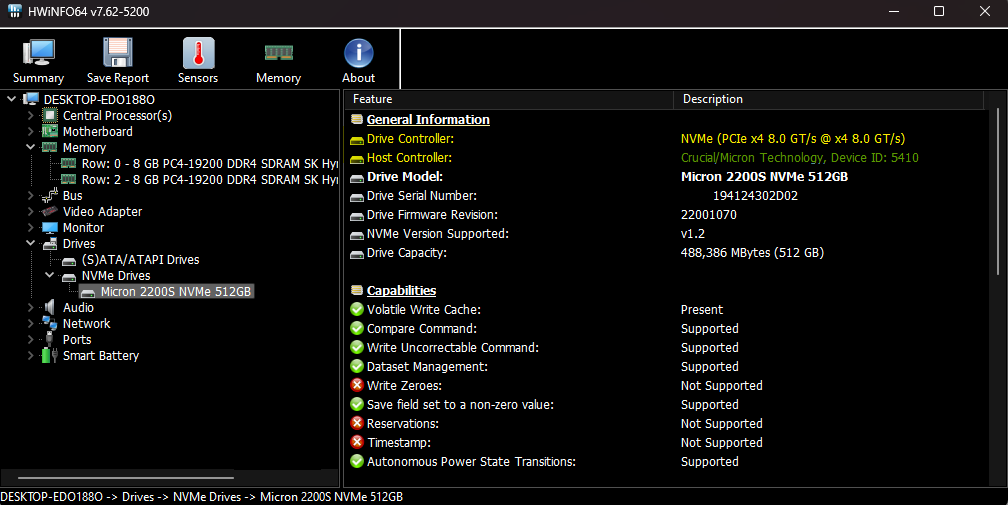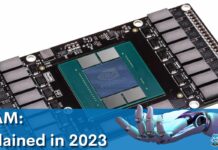SSDs are widely preferred over traditional HDDs due to various reasons such as longevity, high-speed data transfer, non-moving parts, and compact size. Another factor that contributes towards making SSDs better than other drives is an SSD controller. In this guide, we will see how an SSD controller maintains the SSDs in good condition for a long time and enables efficient data transfers and why you should always consider the controller before buying an SSD.
Also Read: What Are DIMM Slots?
Key Takeaways
- An SSD controller is the data manager which controls and guides the data flow inside an SSD.
- SSD controller is very important to ensure longevity and high performance of SSD.
- You can find the SSD controller that your SSD is using by checking the manufacturer’s specifications labels or using third-party tools.
What Is An SSD Controller?

An SSD controller is a crucial component within solid-state drives responsible for managing data storage and retrieval. It serves as the “brain” of the SSD, which manages the flow of data between the computer and the memory chips that store the data. The primary functions of an SSD controller include data access, error correction, wear-leveling, garbage collection, and managing the overall performance and longevity of the SSD. It is also referred to as a flash controller or NAND controller.
You can think of an SSD controller as the manager of a storage unit, i.e., SSD. The controller’s job is to keep track of where all your data is stored, like a librarian organizing books in a library. When you want to read or write data to the SSD, you talk to the controller, and it makes sure you find what you’re looking for quickly and accurately.
The controller also makes sure that your data stays safe and lasts a long time. It’s like a repairperson who fixes things that might go wrong inside the storage unit. For example, if some parts of the storage start to wear out over time, the controller helps spread the wear evenly so that your SSD lasts a lot longer. It’s a crucial part of why SSDs are fast, reliable, and a popular choice for storing data in computers and devices. So, in simple terms, the SSD controller is like the smart organizer and protector of your data inside the SSD.
Is SSD Controller Important?

The SSD controller is critically important for several reasons. First and foremost, it determines the overall performance of the SSD. The controller manages data storage and retrieval, ensuring that data is read from and written to the NAND flash memory efficiently. This leads to faster boot times, quicker application launches, and reduced file access latency compared to traditional hard drives. The controller’s ability to handle data requests swiftly is a primary factor behind the remarkable speed and responsiveness of SSDs.
Secondly, the SSD controller is vital for data integrity and longevity. It incorporates error correction mechanisms to detect and correct data errors that can naturally occur in NAND flash memory cells. Additionally, it employs wear-leveling algorithms to distribute write and erase cycles evenly across the memory cells, preventing certain cells from wearing out faster than others. This enhances the SSD’s durability and extends its lifespan, making it a reliable long-term storage solution.
Also Read: Best SSDs For Gaming
How To Find What Controller An SSD Uses?
There are various ways to find out what controller a specific SSD uses. I have listed some of the easy ones below:
Check the Manufacturer’s Website
The easiest and most reliable method is to visit the official website of the SSD manufacturer. Manufacturers often provide detailed specifications and product information, including the controller used in their SSDs. Look for the product page or documentation related to the specific SSD model you’re interested in.
Check the SSD Label or Sticker

In some cases, the SSD controller may be mentioned on a label or sticker attached to the drive itself. This label is usually located on the SSD’s casing. However, this information may not always be present or may be limited to the brand of the controller rather than the specific model.
Use Third-Party Tools
There are third-party software tools and utilities that can provide detailed information about your SSD, including the controller model. Popular options include CrystalDiskInfo and HWiNFO. Download and install one of these tools, and it should display the controller information along with other drive details.

FAQs
A controller is like the data manager in an SSD.
Yes, HDDs also have controllers, but their functionality differs from the SSD ones.
Thank you! Please share your positive feedback. 🔋
How could we improve this post? Please Help us. 😔
[Wiki Editor]
Ali Rashid Khan is an avid gamer, hardware enthusiast, photographer, and devoted litterateur with a period of experience spanning more than 14 years. Sporting a specialization with regards to the latest tech in flagship phones, gaming laptops, and top-of-the-line PCs, Ali is known for consistently presenting the most detailed objective perspective on all types of gaming products, ranging from the Best Motherboards, CPU Coolers, RAM kits, GPUs, and PSUs amongst numerous other peripherals. When he’s not busy writing, you’ll find Ali meddling with mechanical keyboards, indulging in vehicular racing, or professionally competing worldwide with fellow mind-sport athletes in Scrabble at an international level. Currently speaking, Ali has completed his A-Level GCEs with plans to go into either Allopathic Medicine or Business Studies, or who knows, perhaps a full-time dedicated technological journalist.





![What Is PWM? [Fans, Connectors & Working]](https://tech4gamers.com/wp-content/uploads/2023/08/HOW-TO-1-1-218x150.jpg)
![L3 Cache Explained [CPUs]](https://tech4gamers.com/wp-content/uploads/2023/06/HOW-TO-1-218x150.png)
